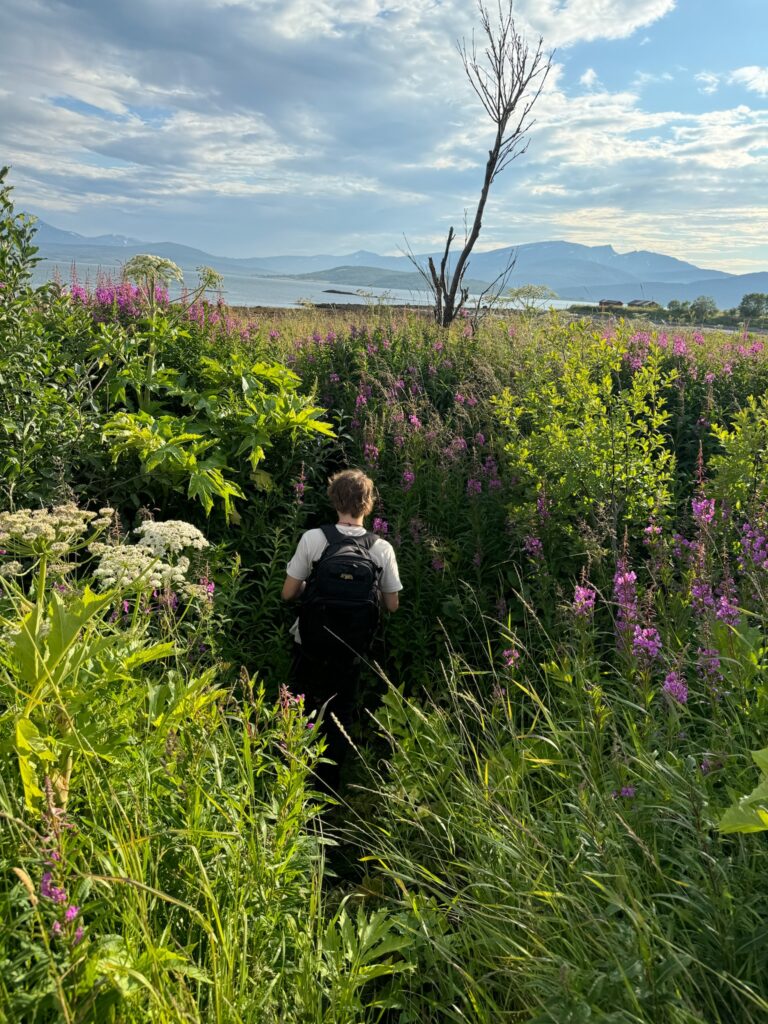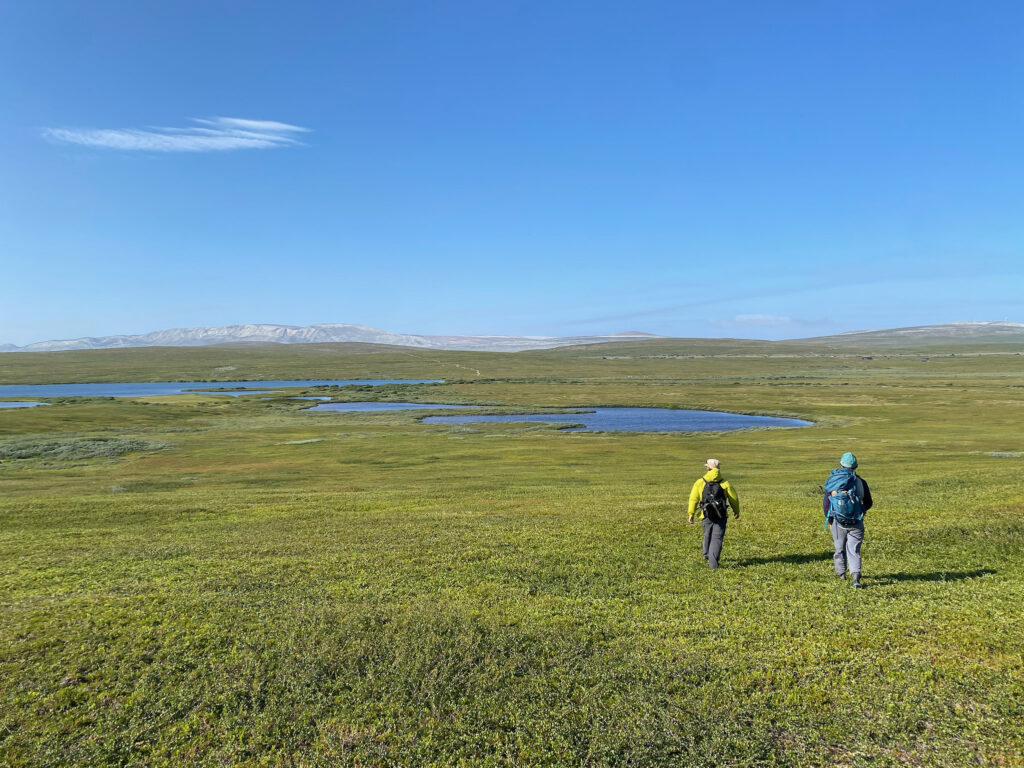
By Alexandra McLaughlin ’16
In Arctic Norway, Lukas Lock-Scamp ’25, Mary Ossar ’24, and biology professor Mary Heskel research tundra plants in a rapidly changing climate.
“It’s not supposed to be hot in the Arctic, even in summer.”
—Professor Mary Heskel
In Arctic Norway, the last thing Biology Professor Mary Heskel expected was to be sweating in 80-degree heat. “It’s not supposed to be hot in the Arctic, even in summer,” she said.
Climate change is rapidly warming the region, about four times faster than the rest of the planet. Dr. Heskel, two Macalester students, and a large team of scientists were on the remote Varanger Peninsula in Norway, working on a National Science Foundation-funded project. The team studied how climate change is affecting reindeer grazing by examining plant properties.
“The goal is to map the nutritional content of these plants and how this might attract or deter reindeer,” Prof. Heskel said. She noted concerns over hotter, drier conditions harming biodiversity, with reindeer potentially losing the nutritious and tasty plants they prefer.
During fieldwork, they measured plant functions like water transport and carbon uptake. “We hope our leaf-level measurements can be scaled up to model ecosystem functions across the landscape,” she said.
Days were long, filled with walking across the tundra, collecting plant data, and enjoying cloudberries, a special Arctic treat.
“The shrubland looks barren from a distance, but it’s full of life!” said Lukas Lock-Scamp ’25 (Minneapolis). “You have to pay attention to where you set your feet. The plants grow on and around rocks that can easily trip you.”
 Through counting and classifying plants, the students learned to identify over 40 plant species. They collected leaf samples and used tools to measure gas exchange, fluorescence, and spectral data.
Through counting and classifying plants, the students learned to identify over 40 plant species. They collected leaf samples and used tools to measure gas exchange, fluorescence, and spectral data.
“We would swim in the river after fieldwork to cool off,” said Mary Ossar ’24 (Brookline, Mass.), whose first experience with the Arctic came from Prof. Heskel’s Arctic Ecology class.
“Prior to that class, I thought the Arctic was a frozen tundra of nothingness, so learning about year-round ecosystems adapted to the climate was eye-opening,” she said. She chose to focus her capstone on how climate change impacts the Arctic.
Dr. Heskel said the experience teaches students transferable skills that go beyond the classroom, like working in large teams, data management, and even driving an ATV and navigating with a compass. She plans to return with more Macalester students next year for the final field season.
Ossar encouraged students to connect with professors early to get involved in research. “Every one of my professors has been happy to talk about their work,” she said.
For Lock-Scamp, the research’s importance is tied to those hot field days.
“The world understands climate change through temperature and views the Arctic as a cold place,” he said. “Describing temperature change in a place that is fixed in collective memory could be a transformative moment of understanding for people who don’t think about climate change all that often.”

October 7 2024
Back to top




